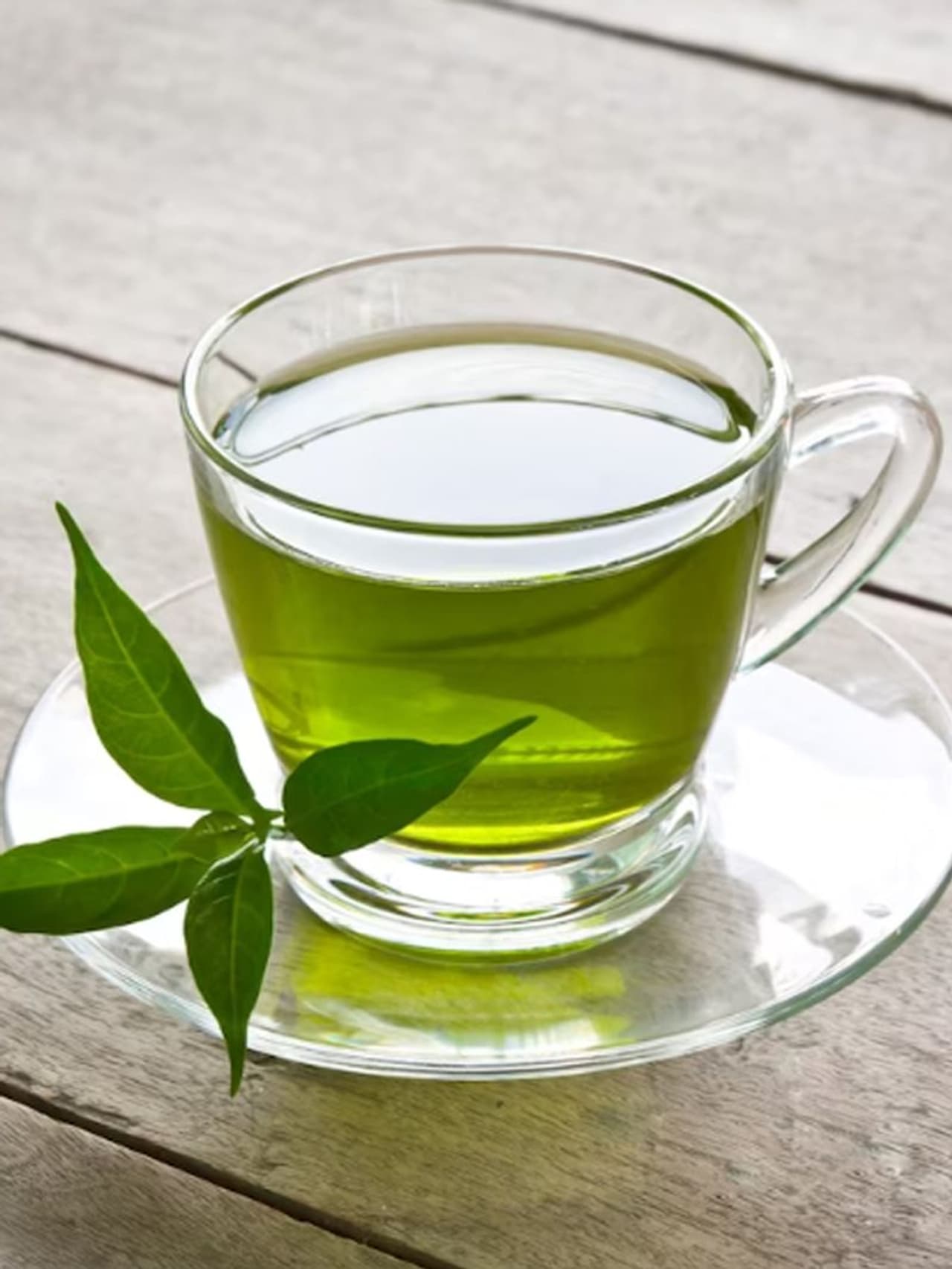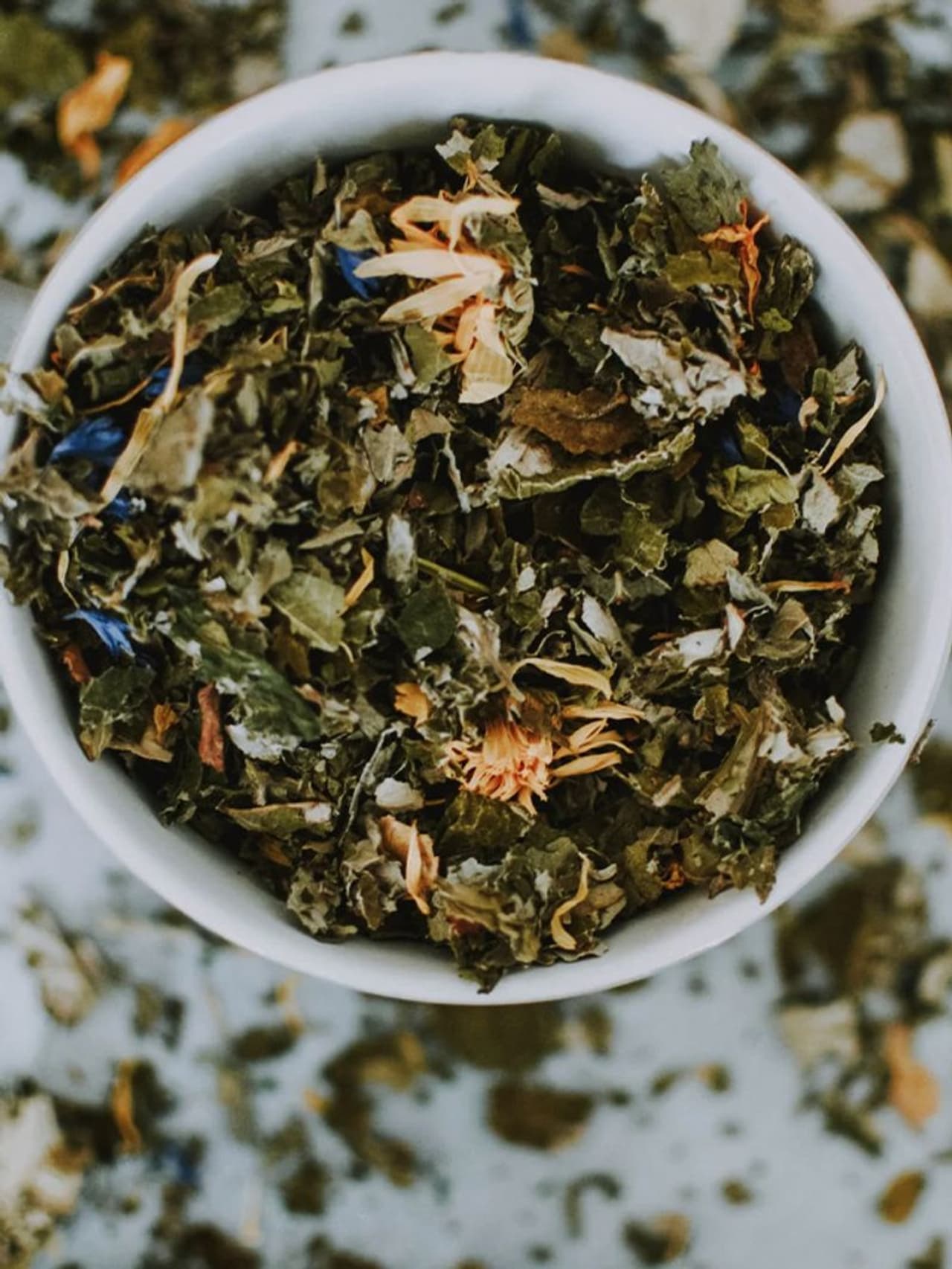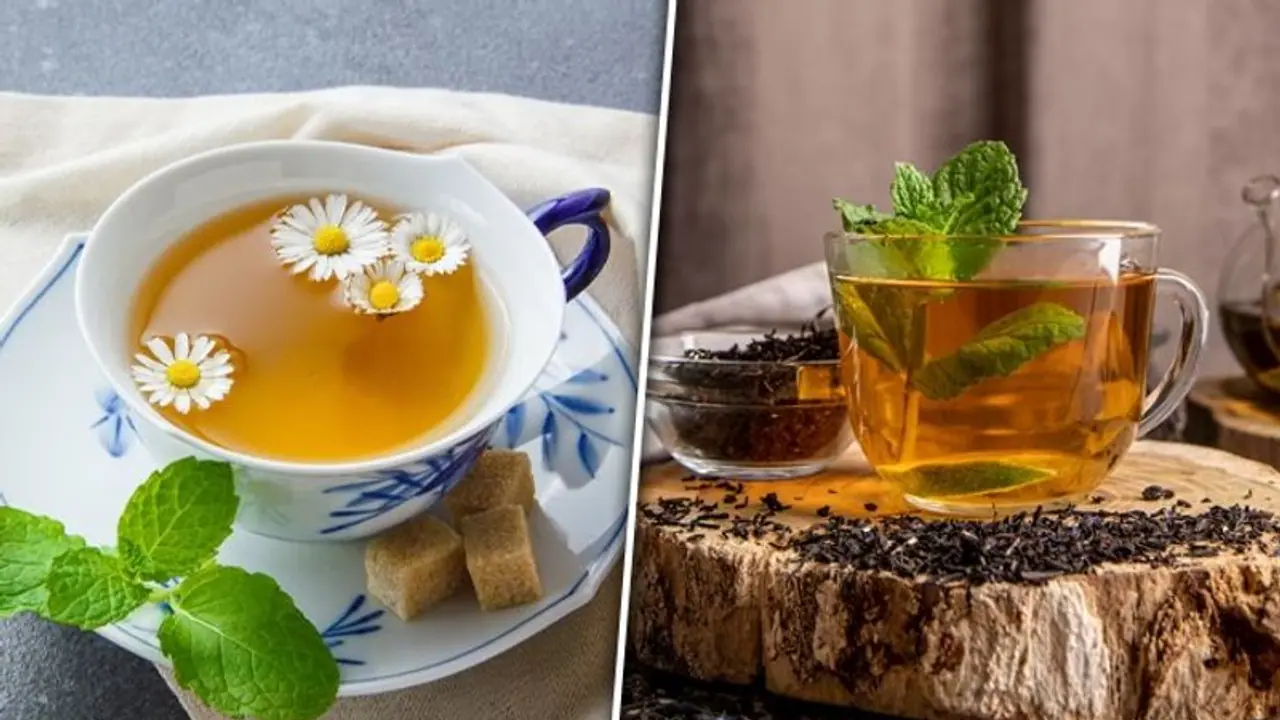Ultimately, the choice between green tea and herbal tea depends on your personal preferences, caffeine sensitivity, and health goals. Both can be enjoyed as part of a balanced and healthy lifestyle.

Both green tea and herbal tea offer various health benefits, but they have different characteristics and properties. The choice between the two depends on your preferences and specific health goals. Here are points to consider for both:
Green Tea:
- Caffeine Content: Green tea contains caffeine, which can provide a mild energy boost and improved focus without the jitters associated with coffee.
- Antioxidants: Green tea is rich in catechins, particularly epigallocatechin gallate (EGCG), linked to various health benefits, including potential weight management support and reduced risk of chronic diseases.
- Metabolism Boost: Some studies suggest combining caffeine and antioxidants in green tea may slightly boost metabolic rate, potentially aiding in weight loss efforts.
- Brain Health: Green tea may have neuroprotective properties and could be linked to a reduced risk of cognitive decline.
- Taste: Green tea has a distinct flavor ranging from mild and grassy to slightly astringent, depending on the type and preparation.
- Varieties: There are various types of green tea, such as matcha, sencha, and jasmine, each with its unique flavor profile and potential health benefits.
Also Read: Mint to Basil: 7 Kitchen Herbs you can grow at home

Herbal Tea:
- Caffeine-Free Options: Herbal teas are naturally caffeine-free, making them suitable for those looking to avoid caffeine's effects.
- Wide Range of Flavors: Herbal teas come in various flavours, often derived from herbs, flowers, fruits, and spices. They can be soothing, and aromatic, and provide a diverse taste experience.
- Health Benefits: Different herbal teas offer various health benefits. For instance, chamomile is known for relaxation, peppermint for digestive support, and hibiscus for potential cardiovascular benefits.
- Calming Effects: Many herbal teas, such as chamomile and lavender, have calming properties that can help reduce stress and improve sleep quality.
- Digestive Support: Herbal teas like ginger, peppermint, and fennel are known for aiding digestion and alleviating gastrointestinal discomfort.
- Herbal Infusions: Some herbal teas are technically not "tea" as they don't come from the tea plant (Camellia sinensis). Instead, they are herbal infusions, often made from flowers, leaves, and roots.
Also Read: Wheatgrass juice: 7 incredible ways it helps in weight loss

If you have specific health concerns or conditions, it's a good idea to consult a healthcare professional before changing your beverage choices.
